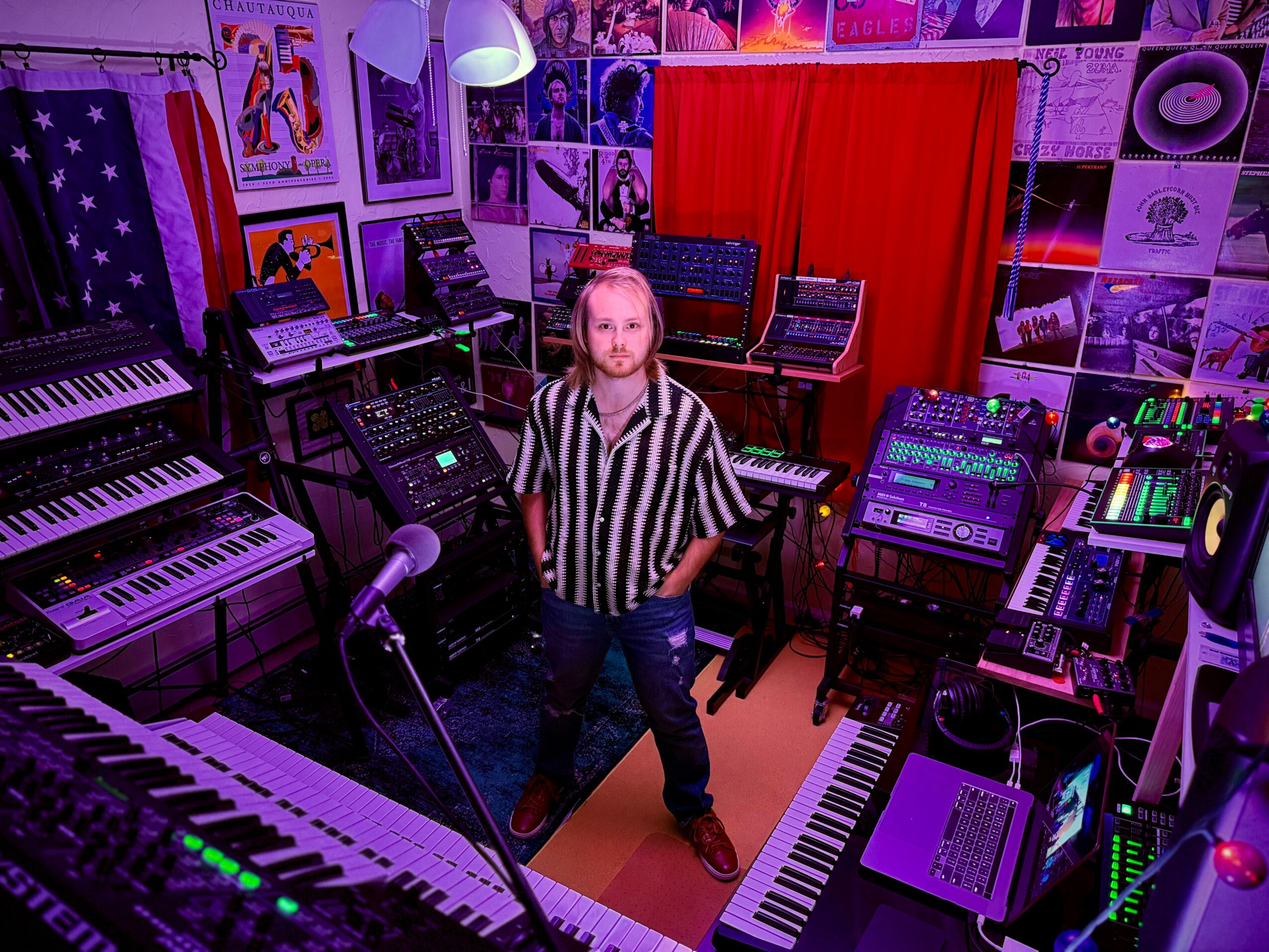

We’re looking forward to introducing you to Brad Belmondo. Check out our conversation below.
Hi Brad, thank you so much for joining us today. We’re thrilled to learn more about your journey, values and what you are currently working on. Let’s start with an ice breaker: Have any recent moments made you laugh or feel proud?
Over the past year, I’ve had the rewarding experience of working as a substitute teacher at my former school. It’s a small, K-12 school with a joint building, where everything is interconnected. Many people I’ve met share stories of graduating classes with 300 students, but this school isn’t much larger in total. While it has its chaotic moments, this “sub job” (as I like to call it, my full-time, part-time job) has given me the opportunity to learn from and better understand our future – the students who have come after me.
Of course, I face my share of teasing, nicknames, and headaches, but overall, I look forward to going in every day. Each day brings a new age group and field of study.
While this is different from my musical career, what makes me proud is that every day, I walk into the school and hear students talking about my music. They discuss pictures they’ve seen of me performing or mention listening to one of my projects. I try to remain nonchalant, but I can’t help but smile and laugh. Some days, students hum my melodies to me, and others sing my songs in class, word for word. My role is to keep them focused, but it’s an amazing feeling to receive growing support from my students, even if playing music too loudly or during class occasionally gets them in trouble.
It’s even better and funnier when someone wears my merch to class.
During my own high school years (2016-2020), I was also deeply involved in music. I started writing in 7th grade, so I wasn’t a newcomer by the time I was a senior. However, because of my passion for music, which wasn’t widely shared, I faced bullying for years. I was told I wouldn’t amount to anything as a musician. Now, I understand it was jealousy and teenage angst, but it was incredibly difficult at the time. Therefore, I completely empathize with students going through similar situations now and strive to support them as much as I can.
Because of all of this, returning and having young fans who ask about my music or request autographs is something I’m incredibly proud of. I can also see that many students have great potential. That’s why I aim to help anyone who needs assistance in reaching their dreams. It’s what I wished I had.
Can you briefly introduce yourself and share what makes you or your brand unique?
First of all, thanks so much for the interest in me! I’m Brad Belmondo—put simply, I’m an all-around musician. In a more complex sense, I’m a multi-instrumentalist, multimedia composer, producer, and progressive pop/rock artist. A Berklee College of Music graduate, I’ve had the incredible opportunity to perform, produce, and travel around the world—from New Zealand and Spain to Austria and the Czech Republic—experiencing and appreciating many diverse cultures. Growing up in a small town in Western New York, these travels have shaped me profoundly, and they’ve strengthened one of my core values: empathy, and the desire to make people’s lives better through art and connection.
As an independent artist and writer, I feel it’s vital to stand up for my peers against oppression, greed, and hatred. Many of my songs explore topics that are often viewed as divisive—but I approach them as opportunities for dialogue rather than debate. I believe music is a universal language that bridges generations and heals social divides when used with honesty and intent.
I often describe my music as progressive pop/rock—but what does that really mean? I live with chromesthesia, a form of synesthesia that blends sound and color in my perception. When I hear certain instruments, notes, or textures, I experience them as vivid colors, shapes, and sensations. A C♯ on a bell might appear as a silvery metallic sphere; a flute might feel like a soft green grainy wood. This sensory crossover makes music a deeply visual and emotional experience for me—and it inspires me to experiment with genre, texture, and orchestration. Whether through complex rhythms, layered synthesizers, or orchestral arrangements, I aim to create pop/rock music that feel as colorful and multidimensional as I perceive them.
Recently, I’ve also ventured into writing. My first novel, The Chromesthetes, is based on my avant-garde concept album The Chromesthetes: Into the Cloud. It’s a speculative fiction story about a group of young rebels fighting against a powerful tech corporation that controls people’s minds through a neural network. Their struggle becomes a battle not only for survival but for the soul of humanity—a reflection of my own experiences as a chromesthete and a commentary on our evolving relationship with technology.
Looking ahead, I’m preparing to move to Los Angeles to pursue new creative opportunities—whether composing for film, TV, or video games; producing other artists; performing on trumpet and keys; or continuing to write and release my own music. Whatever comes next, my goal remains the same: to create work that inspires empathy, sparks conversation, and encourages others to do good in the world.
Okay, so here’s a deep one: Who were you before the world told you who you had to be?
Honestly, there have been a few versions of me, though I’ve always been lucky enough to understand myself for who I really am and to never question it. Off the top of my head, three major points in my life have brought me here.
Growing up, I was very fortunate to come from an extremely loving and supportive family. We’ve taken on the world together, and that has allowed me to mold myself into someone I would hope to respect. For as long as I can remember, I loved music—singing, teaching myself piano, and dancing around foolishly as a toddler. But I didn’t realize how deeply it affected me until I went to my first Bruce Springsteen concert at Fenway Park in Boston. There’s truly no other experience like it. For a young kid, the power of the lyrics, the electricity of the crowd, and the raw energy of rock and roll opened my eyes to a new world. Becoming a fan of classic rock gave me a window into how people lived and why they wrote the way they did. For an innocent kid, it was transformative. Music became a kind of magic for me, and though I didn’t realize it then, it also became my refuge from the social anxiety I quietly carried—it was a space where I could finally feel safe within myself.
Sure, classic rock and the absence of pop radio shaped me as a kid—but the next stage of my life changed me even more: being bullied in school. For years, I struggled with not fitting in or being left out. At the time, baseball was my biggest passion. I dreamed of playing professionally, spent countless hours practicing, and poured everything I had into it. That dream shattered when I was humiliated by former friends, coaches, and many families in my town. I entered high school friendless and without the one thing I thought defined me.
So I turned to music. I decided to become Brad Belmondo the artist—and I wasn’t going to let anyone take that away. I worked relentlessly through high school, determined to rise above the people who tore me down. That perseverance paid off: I earned state and national honors in trumpet, vocals, and composition, became principal trumpet of a youth orchestra, toured Europe, and was accepted into my dream school, Berklee College of Music. I was no longer the kid trying to fit in—I was the kid driven by purpose, climbing toward heights I could never have imagined. And that drive is still what defines me today.
Finally, my third big turning point—one that overlaps with the last—came with the world itself. I grew up in what I truly believe was the last perfect balance between technology and humanity, right before we became consumed by it. I watched how people were being treated in my country, how friends and family reacted to division and fear, and it hardened my soul. Add to that the years of the pandemic, when I turned inward and focused on myself as a musician. Thinking back to those Springsteen concerts—and to my own experiences of being treated unfairly—showed me something vital: someone has to be a leader. Someone has to guide my generation. Someone needs to be the musician who changes hearts through love and inspiration.
I’m still waiting for that person to arrive. But maybe that person has to be me.
Since then, I’ve become a warrior for my beliefs—a fighter against greed, hate, and indifference. I write about the topics others shy away from, and I stand for a better future for all of us—one rooted in the same values I dreamed of as a kid: peace, love, prosperity, and a clean Earth. We don’t have that right now. But I believe, with everything in me, that someday I’ll have a say in making it real.
If you could say one kind thing to your younger self, what would it be?
Simple: take it all in.
One of the greatest souls I’ve ever met—my friend and teacher, Tiger Okoshi—once sat me down in one of my final lessons. He told me that I’m on a journey (as we all are) up a great and beautiful mountain. When we look up, we can see the peak high in the sky—a truly spectacular sight. In our lives and our careers, we climb toward that peak, facing whatever challenges are thrown our way. Eventually, we reach it.
But then he paused, and added one last thing.
The most important part of the journey up the mountain is the times we stop to look at the view around us—to see what’s happening, to take it in, to appreciate where we are. Because when we finally reach the top, life may be grand before we head back down, but the truest and most valuable memories come from the climb itself.
I’ve always had confidence in myself and in what I’ve wanted to achieve—but that lesson gave me an extra push to stop more often, breathe, and appreciate the moment. It’s something I now try to pass on to my students and peers: take a moment to appreciate where you are on your mountain.
So a lot of these questions go deep, but if you are open to it, we’ve got a few more questions that we’d love to get your take on. What’s a belief you used to hold tightly but now think was naive or wrong?
I used to believe that if you worked hard, stayed true to yourself, and were good at what you do, the world would naturally make space for you. I thought that being passionate and kind would always be enough to rise above the noise. But I’ve learned that the world doesn’t always reward authenticity or heart—it rewards convenience, compliance, and whatever fits neatly into a box.
That realization hurt at first, but it also reshaped how I see success. It made me realize that integrity means holding your ground even when it’s unpopular, and that true artistry or leadership isn’t about waiting for a seat at the table—it’s about building your own, inviting others, and keeping the conversation honest.
As a kid, I also believed the world was pure—that people, deep down, were guided by kindness and that the systems around us existed to help us grow. Every year, that belief has been tested. You start to see the cracks—the greed, the manipulation, the hate—and you realize how much of what we’re told to trust has been designed to divide or control us. It’s disturbing when those illusions fade, because it forces you to confront how far we’ve drifted from empathy and truth.
But even with all that, I still hold onto hope. I don’t think optimism means ignoring what’s wrong—it means believing that what’s right is still worth fighting for. I genuinely believe we can make the world pure again—not in the naive way I once imagined, but in a real, deliberate way. Through compassion, creativity, and courage, we can rebuild something better than what we were given.
Before we go, we’d love to hear your thoughts on some longer-run, legacy type questions. Are you doing what you were born to do—or what you were told to do?
I’m absolutely doing what I was born to do. Like most musicians, I live within a cloud that people outside of art often don’t fully understand. They don’t see the depth or the vulnerability it takes to devote your life to emotion—to opening yourself up so others can feel something real. They don’t always see the value in that. And unfortunately, neither do many of our leaders or our society at large.
What are we told to do? To figure out a way to be materially successful. To chase stability, to retire with money, and then… what? Spend a lifetime working just to give most of your time to someone else’s profit? I don’t believe in that. I believe in having order, yes, but I also believe in being human—in feeling deeply and living deliberately.
As an artist, it’s my job to feel and to share how I feel. Success to me isn’t about fame or wealth—it’s about purpose, connection, and love. It’s about bringing joy to someone else’s day, even if it’s as simple as helping them smile again.
So yes, I’m doing what I was born to do. And though there’s always greener grass somewhere, I can honestly say—I couldn’t be happier with where I’m standing right now.
Contact Info:
- Instagram: https://www.instagram.com/brad_belmondo_music
- Linkedin: https://www.linkedin.com/in/brad-belmondo/
- Facebook: https://www.facebook.com/bradbel442
- Youtube: https://www.youtube.com/@bradbelmondomusic
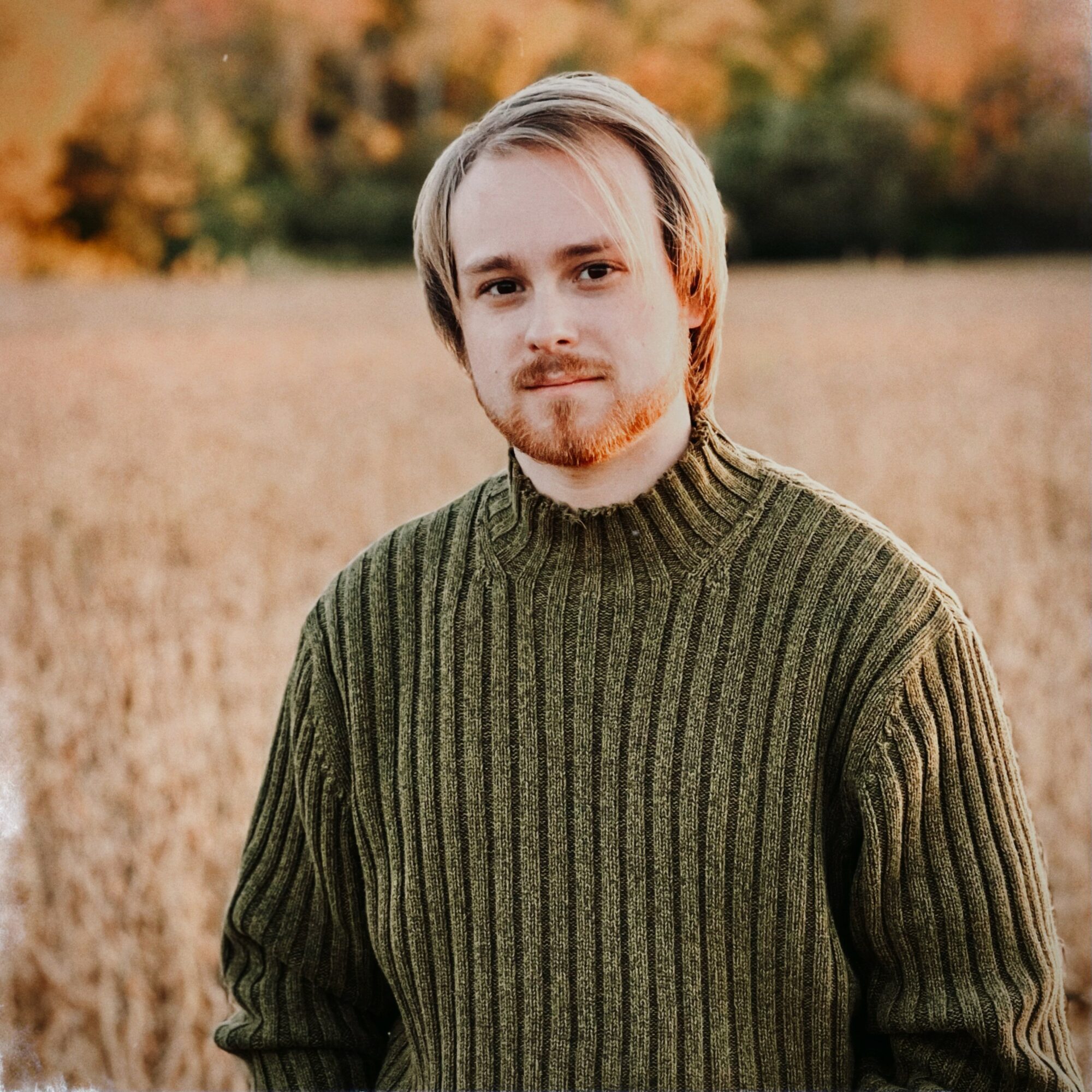
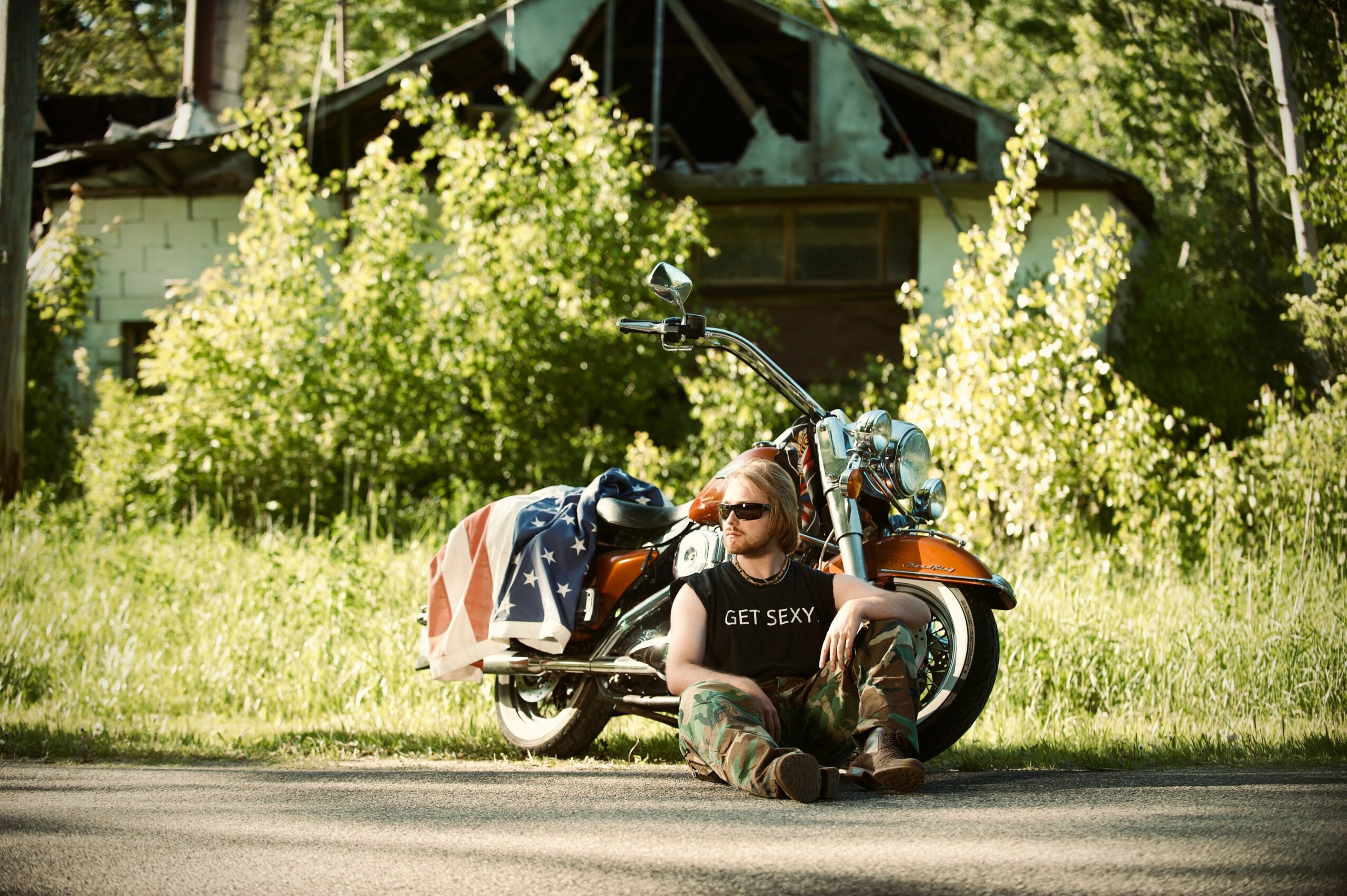

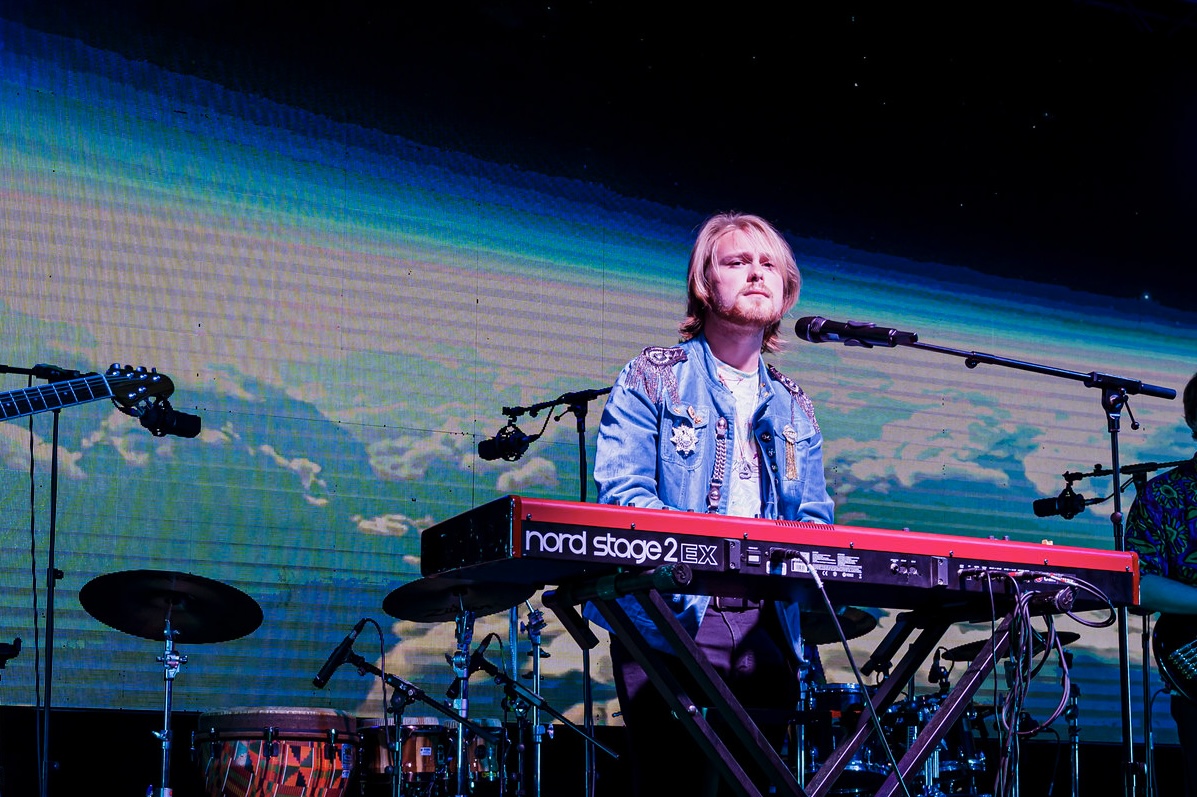
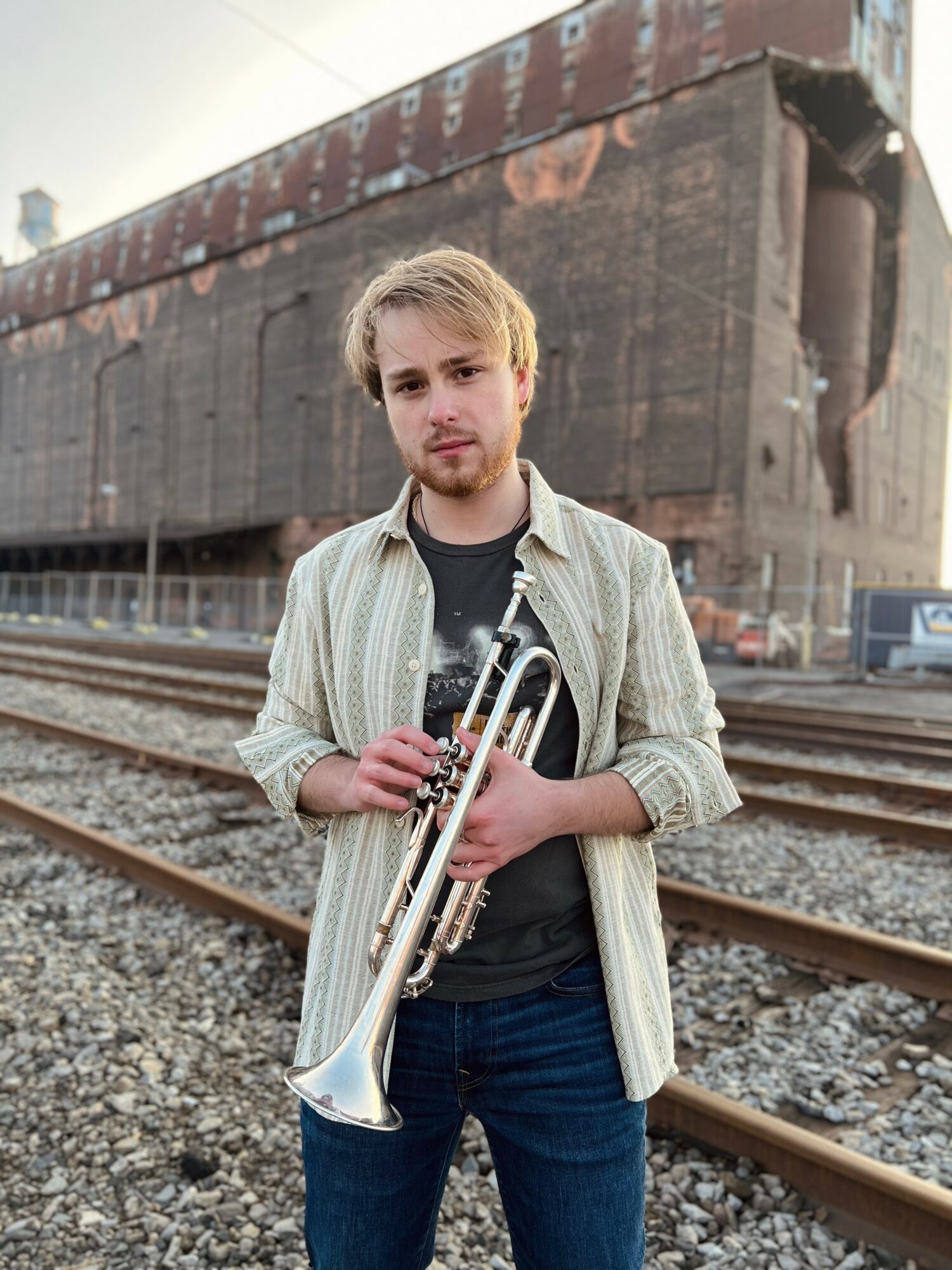
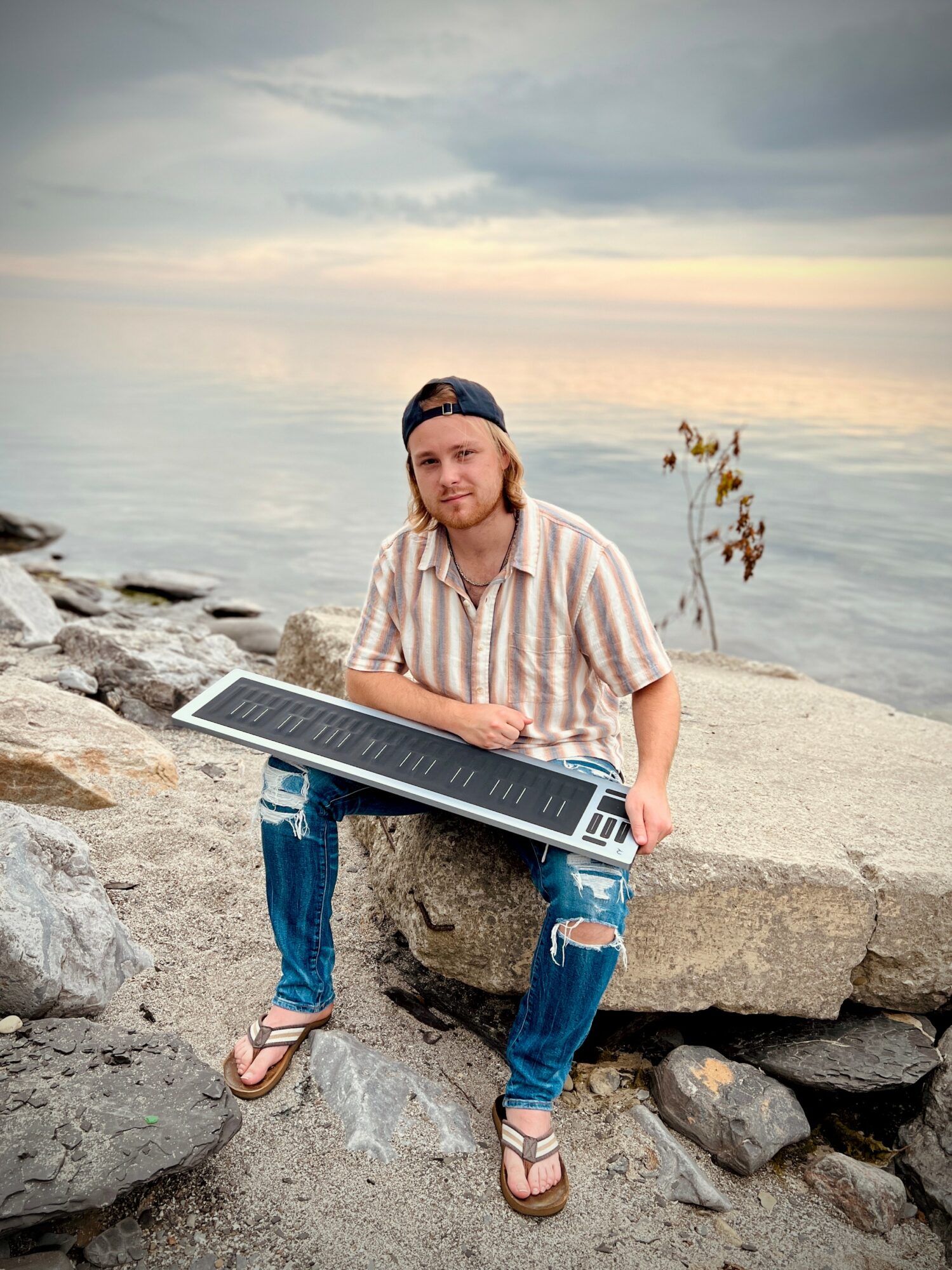
Image Credits
Doug Belmondo
Eliott Allemand














